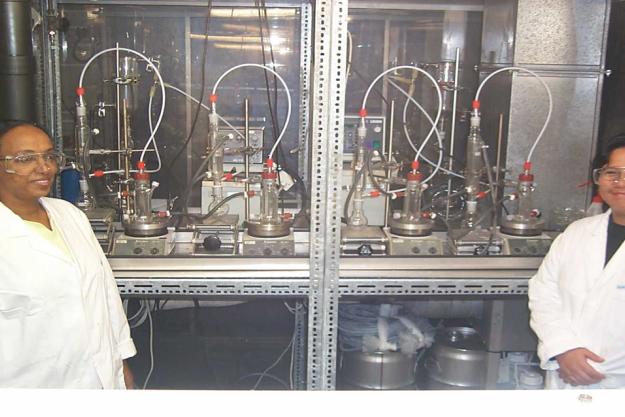
The OPCW began its annual Associate Programme on 18 July 2008 at the OPCW headquarters in The Hague, the ninth in a series that was launched by the Organisation in 2000. The Associate Programme aims to provide greater understanding of the Chemical Weapons Convention (CWC) to chemists and chemical engineers from OPCW Member States with developing economies, focusing on the promotion of the peaceful uses of chemistry.
The programme enhances Member States’ national capacity to implement the CWC by offering training in chemistry for personnel from industry, universities and government agencies, and facilitates trade through the adoption of best practices in the chemical industry. It also broadens the pool of future recruits for National Authorities, institutions and economies of Member States as well as for the Technical Secretariat.
The 2008 programme has been expanded as part of the Technical Secretariat’s recent initiative of strengthened cooperation with Africa. The initiative seeks to increase participation of African Member States in programmes and activities that promote the peaceful uses of chemistry and enhance national protective capacities.
As a result, this year’s programme has been expanded to 27 participants from 25 countries, including 13 participants from 11 African countries: Argentina, Botswana, Congo, Fiji, Ghana, Iran, Jamaica, Jordan, Lao People’s Democratic Republic, Lesotho, Libya, Malaysia, Mauritius, Mongolia, Nigeria, Pakistan, Qatar, Saint Lucia, Serbia, South Africa (2), Tajikistan, Turkey, Uganda, Zambia and Zimbabwe (2).
The 9-week curriculum will provide Associates a wider understanding of advanced industrial practice with an emphasis on chemical safety. Associates will be hosted by chemical plants in Denmark, France, India, Japan, the Netherlands, Spain and Switzerland, and will participate in a 3-week “Chemical Engineering-Oriented Skills Development Course” at the University of Surrey, UK. All of these Member States and their national chemical industry associations have extended their support to the Programme.
In addition, the Government of United Kingdom of Great Britain and Northern Ireland has made a financial contribution for meeting the costs related to the university segment in Surrey, while the Government of Japan has made an in-kind contribution.
